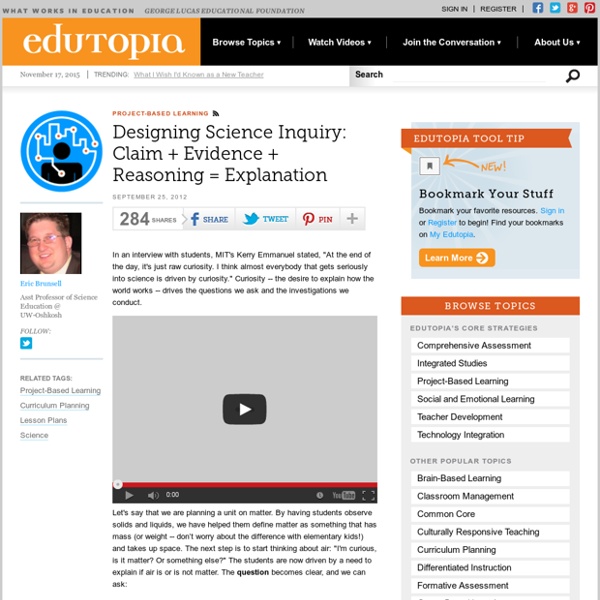Designing Science Inquiry: Claim + Evidence + Reasoning = Explanation

Scientific Writing Scaffolds
As a department we've been working on different writing scaffolds. We use Constructing Meaning as a school which I think is mostly good. We've tried all kinds of different writing frames with varying degrees of success. Most of these come from Constructing Meaning. This was one of our first attempts. It was our sixth graders' first or second try at extended science writing. We pulled two main lessons from this. 1. 2. Next attempts: This is just the first page but the back is similar. Below is an even more generalized example. We go back and forth about word banks. Most recently we gave all of our sixth graders a prompt from the textbook about whether or not the government should provide flood insurance. On my end, all they got was a graphic organizer. I put the claim at the bottom because I wanted them to go through each argument first before deciding on a claim. Their claims I limited to "The government should/should not provide flood insurance." I was very happy with the results here.
Claim Evidence Reasoning
By far, the biggest shift in my teaching from year 1 to year 7 has been how much emphasis I now place on evaluating evidence and making evidence-based claims. I blame inquiry. Not inquiry in the generalized, overloaded, science teaching approach sense. Just the word. "Inquiry." Even now, when I hear the word "inquiry" I still think mainly of asking questions and designing experiments. We were very busy and very engaged and learned very little. There are a few structures I've been using to help shift the focus on the class to analysis and argument. Claim-Evidence-Reasoning (pdf and pdf) is a framework for writing scientific explanations. As part of their lab handout they get a prompt that looks like this: As the year goes on I remove most of the scaffolds until ultimately the students just get a prompt or question. I've been happy with it. I like frameworks a lot. The key to implementation is that the structure of the class really has to be designed around C-E-R.
Explanations: C.E.R. Prezi
Related:
Related:



